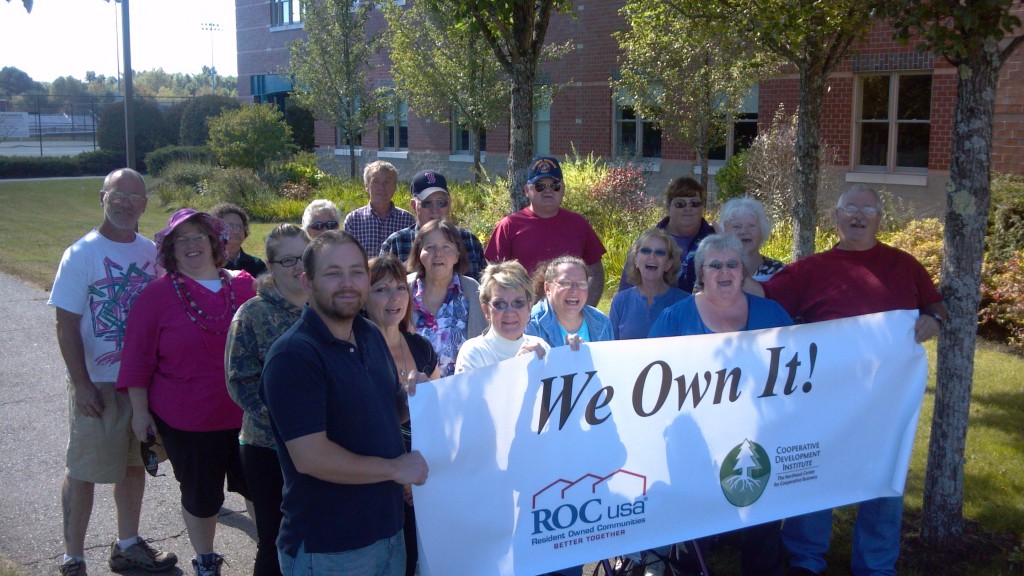
Although the majority of CDI’s activities related to housing are within the Resident Owned Communities Program, CDI also consults with intentional communities, co-housing, zero or low-equity (also called group-equity) housing cooperatives, senior and special-needs housing, community land trusts and land conservation that includes affordable, cooperatively owned housing. Specialized services CDI can provide include real estate negotiation, facilitation of financing, training on use and supervision of service providers, and training on collections policies.
Intentional communities include ecovillages, cohousing, residential land trusts, income-sharing communes, student co-ops, spiritual communities, and other projects where people live together on the basis of explicit common values. There is a treasure trove of resources for setting up and running all kinds of intentional communities at the website of the Fellowship for Intentional Community, http://www.ic.org/.
Group-equity housing, in which member-residents set up a cooperative to buy one or more buildings, in which members live and to which they contribute monthly carrying costs, represent a smart alternative for affordable housing. Often used for somewhat transitory populations such as students or young people, they may be appropriate for any group more interested in stable, affordable monthly living costs than in reaping the rewards of real estate investment. The best place to find information on setting up and running such housing is on the website of North American Students of Cooperation, a membership group of student and other group-equity houses. They lay out the basics in the Organizer’s Handbook (http://www.nasco.coop/development/handbook), but there are a great many additional resources on their Shared Resources Library (http://www.nasco.coop/resources) — everything from how to run effective meetings to the history of cooperatives.
For resources on starting or maintaining a community land trust, see the resources page at the National Community Land Trust Network: http://cltnetwork.org/tools/.
For resources on land conservation in New England, see the Toolboxes at Land for Good: http://landforgood.org/resources/toolbox/.
